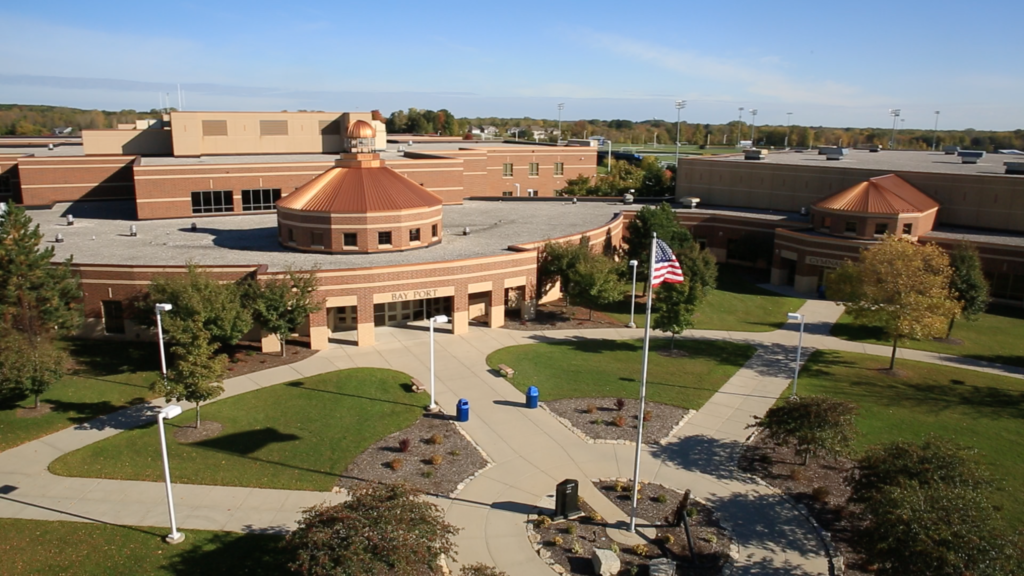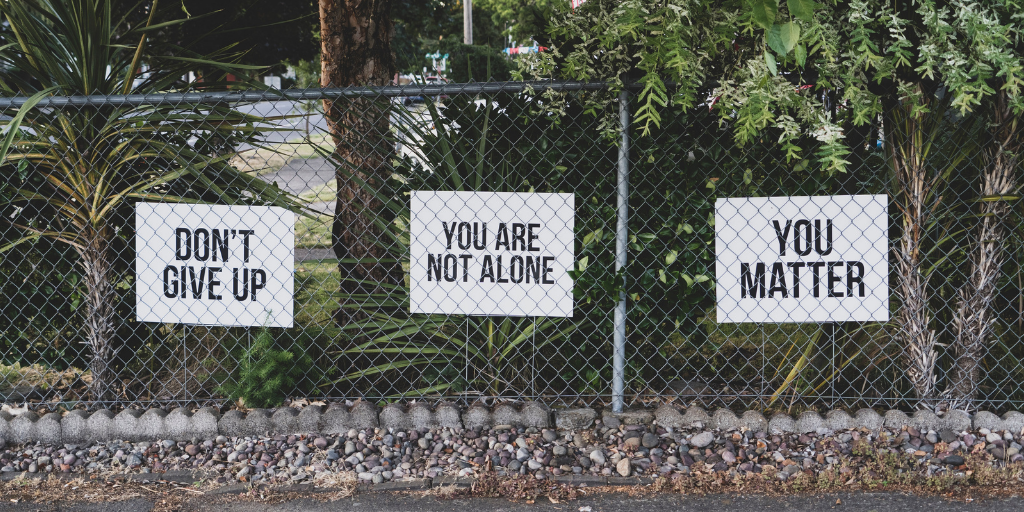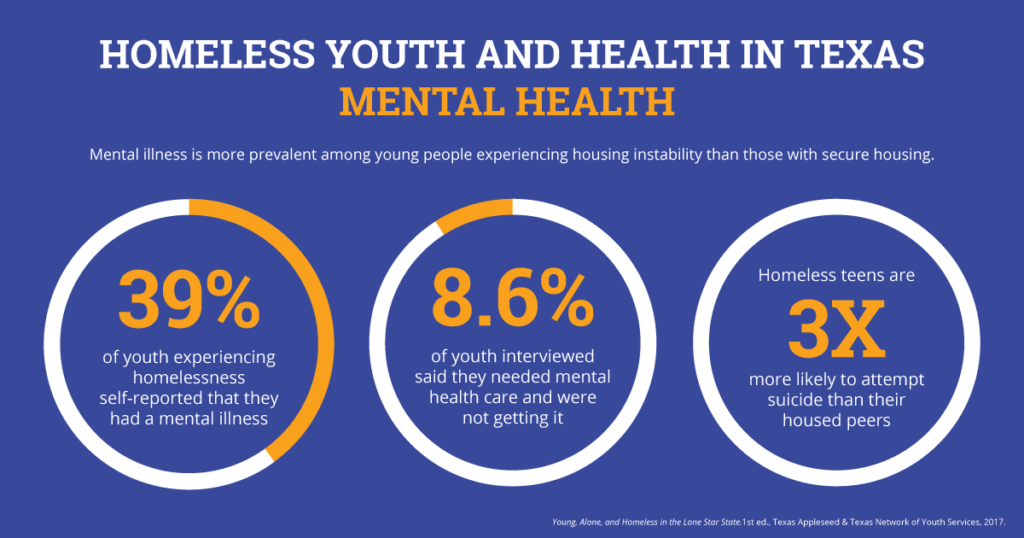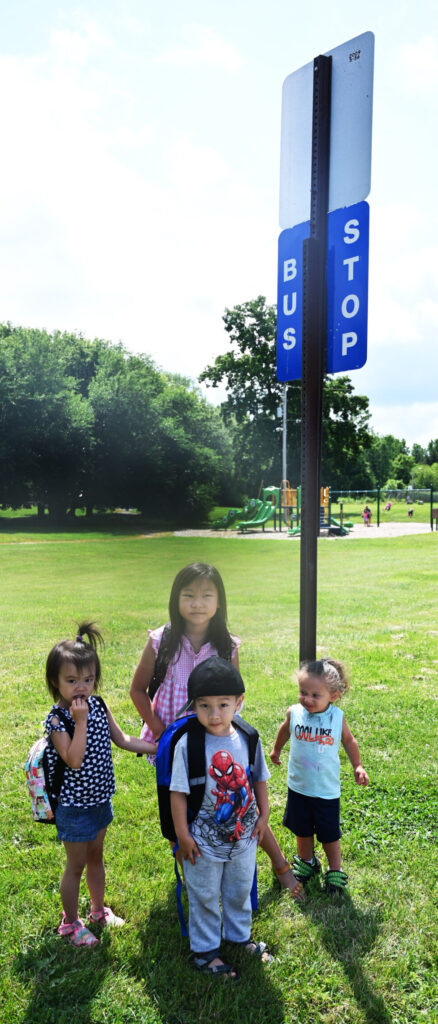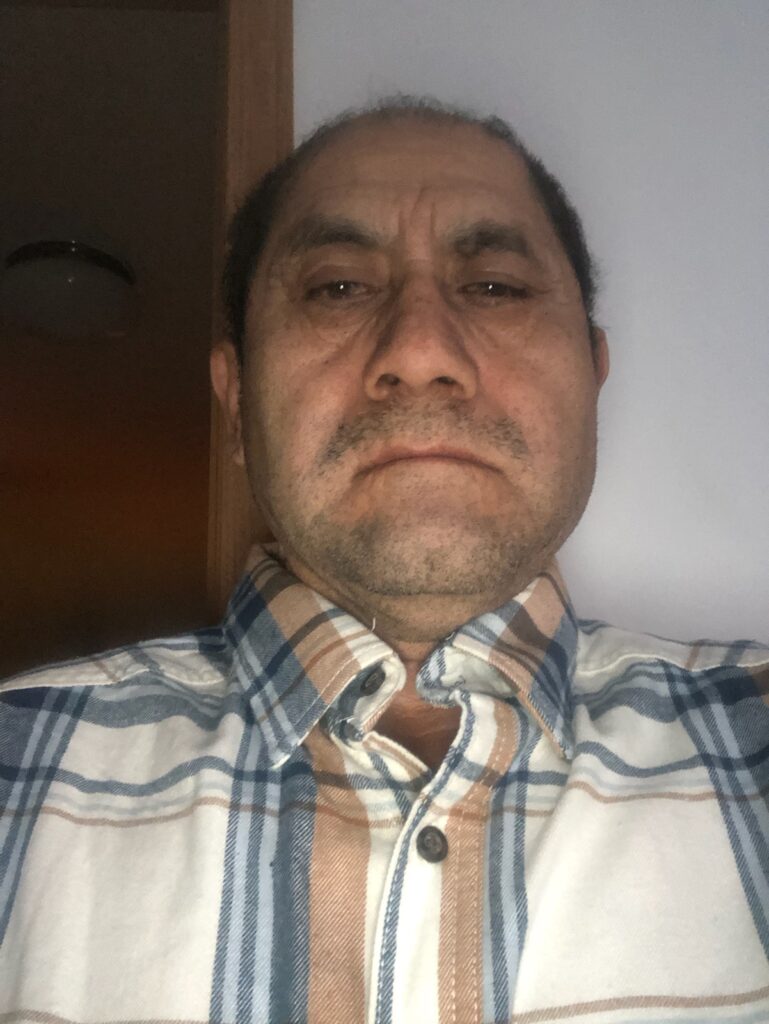Dear Seven-Year-Old Michelle,
This letter is for the little girl in the baby blue funeral dress that will soon vanish from the closet, sold for Mom’s next drug fix.
This letter is for the little girl who knocks timidly on mom’s bedroom door asking permission to just make a sandwich or pour a glass of milk from the fridge.
This letter is for the girl who shares a king mattress on the floor with her siblings, never knowing which apartment or school she’ll call home next month.
This letter is for you.
That baby blue funeral dress meant everything to you, didn’t it? So beautiful, so proper – the last gift from dad, really. You felt like a glowing little girl in it, even on the saddest day of your young life. When it disappeared from the closet, it felt like losing him all over again.
I know you blame mom for selling it for drugs, and that anger will stay with you for years. But one day you’ll understand that she was fighting her own demons, lost in an addiction she couldn’t control. That dress, though – it will always be etched in your memory.
It marked the end of your innocent childhood, and the beginning of a life filled with struggle, heartbreak, and uncertainty. But here’s something beautiful: One day, you’ll be stable enough to buy pretty dresses for your own daughter, and that cycle of loss will be broken.
The instability will be overwhelming – learning to be invisible, to survive. But I want you to know that your sister – yes, the one who got out and started working at LENAS – she’s showing you a path. Watch her. Learn from her. She’s teaching you that there’s a way out, even if you can’t see it clearly yet.
I wish I could tell you that what’s ahead will be easy. It won’t be. But you’re going to make it through, and one day, you’ll be writing this letter from your own apartment, in your final semester of nursing school, with your beautiful daughter sleeping safely in her own room.
I’m writing to you from a place of peace that might seem impossible right now. I’m 34 now and living safely. Yes, you read that right – the girl who bounced between elementary schools will be the first in our family to go to college.
You need to know that none of what will happen is your fault. Not mom’s addiction. Not dad’s death. Not the constant housing moves or the hunger or stealing clothes from our sisters just to have something to wear. And especially not what happens that summer night at the bus stop.
That night will haunt you forever. You’ll be so angry at mom for trying to control you that you’ll storm out to catch the bus. In your shorts and summer clothes, you’ll feel invincible – until a man in a hoodie snatches you from that bus stop. The personal violation, the gun, the helplessness – it will haunt you for years.
When they catch him and he calls you a prostitute, when the community tells you to just move on like it never happened, the pain will feel unbearable. But listen to me: The violation does not define you. One day, it will fuel your fierce determination to protect other women, to tell your story so that others might find their way to safety.
I know why you’ll believe that man when he comes along at 19, promising to take care of you. After everything with mom, after that night at the bus stop, the promise of security will feel like salvation. But those nine years with him will test every ounce of strength you have. When he tells you you’re nothing, that you’ll never be anything, remember this: He sees your potential, and it terrifies him.
Your daughter Audrey will change everything. When you learn she’s nonverbal autistic at age 5, it will feel like being hit “with a Santa Claus-sized bag of bricks.” You’ll cry in that doctor’s office, feeling lost and alone. But Michelle, listen to me, Audrey is going to be your greatest blessing. Through her, you’ll discover a love deeper than anything you’ve known. You’ll develop your own beautiful language, a connection that others might not understand but that fills your heart completely. She is your family – the purest, truest family you’ve ever had.
The day you pack your bags and leave with Audrey will be the scariest and bravest thing you’ve ever done. You’ll still struggle – with alcohol, with depression, with figuring out how to be a mother. But then you’ll eventually find Freedom House, and this is where your real story begins.
Freedom House will become the parent you’ve never had, the family you’ve always needed. They’ll teach you everything from doing laundry, financial management, understanding your own self-worth and running a household. More importantly, they’ll give you time – time to heal, time to learn who you really are, time to become the person you were meant to be. They’ll see potential in you that you can’t yet see in yourself.
Today, I have pride in who I’ve become. While I’m still working through challenges – finding stable childcare for Audrey, managing finances, planning for a home purchase – I’m finally writing my own story.
I’m free from domestic violence. I’m sober. I’m strong.
I’m learning to be proud of myself, even though that voice of self-doubt still whispers sometimes.
I miss the family connections – my brother with his six children, my sisters who I only see at funerals. But I’ve learned that family isn’t always blood. Freedom House has given my daughter and I a community, a support system, a true home. They’ve helped me piece myself back together, bit by bit, until I could finally see my own worth.
That’s why I’m telling our story now. I’m in a place of peace, even with the daily struggles of being a single mother to a child with special needs. I want other women to know there’s hope, there’s help, there’s a way out. Every time I share my journey, it’s like releasing some of the weight carried for so long.
Remember this little girl: We are not our circumstances. That smart, capable person mom always said you were? She was right. You’ll prove it by surviving things that would break most people. You’ll break the cycle of trauma and addiction. You’ll create a different life for your daughter. You’ll help other women find their way to safety.
Most importantly, you’ll learn that strength isn’t about doing everything alone – it’s about having the courage to let others help you rebuild your life. Freedom House will give you the foundation you need to become who you’re meant to be, to finally feel like a human being worthy of love and stability.
When you’re sleeping on that mattress tonight with your siblings, having not showered in days, wondering if things will ever get better, know this: They will.
You’ll have your own space, your own furniture, your own towels (so many towels!), and a future that’s bigger than anything you can imagine right now. Every day, you’ll be able to choose happiness, even while acknowledging the hard days that still come.
Keep going, little one. Help is coming. Your story isn’t just about survival – it’s about triumph.
With love and hope,
Michelle
P.S. – That voice in your head telling you you’re not capable? It’s lying. You’re a great mother and going to be a college graduate real soon. You’ll be a damn good nurse. You’re going to have a real home one day. You’re going to break every cycle that tried to break you. Just watch.



